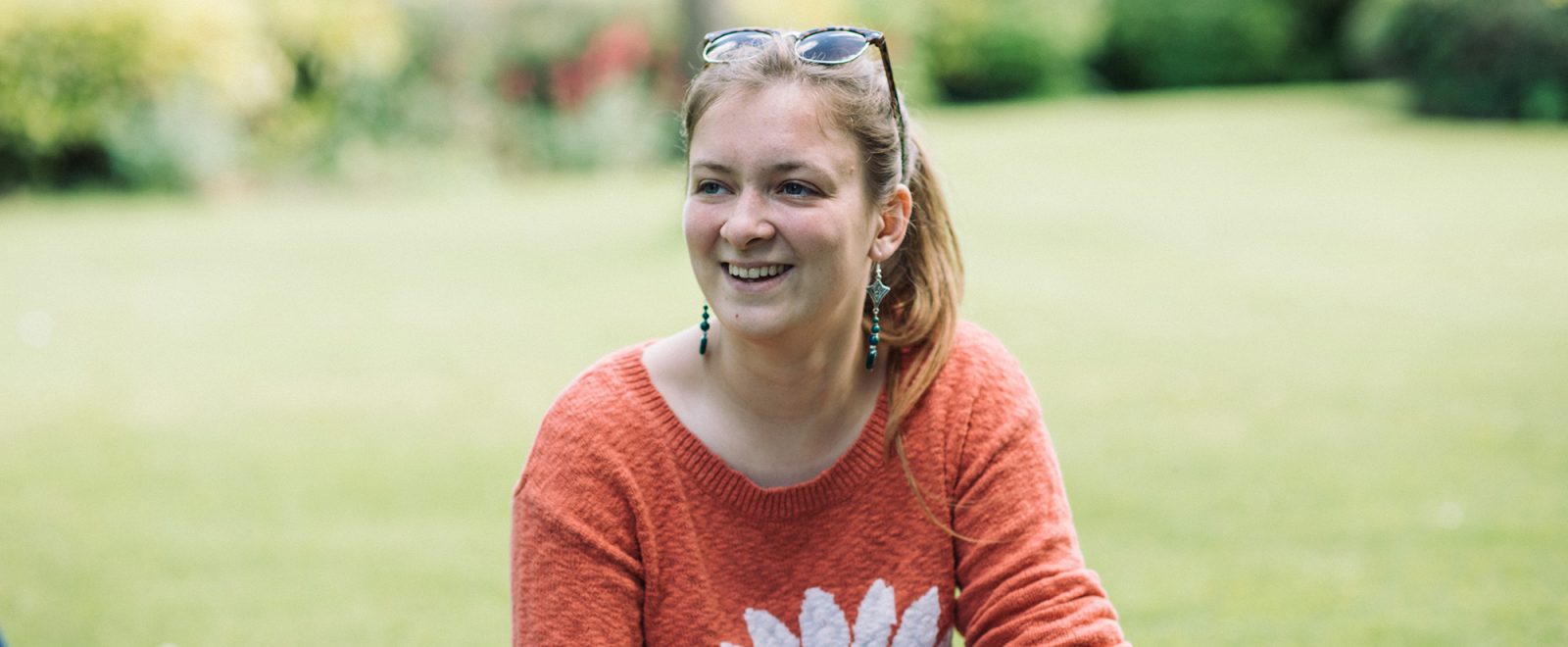
A vibrant community with energy for change
In early 2017, a request came in ‘cold’ for a visit from a Community Builder. Very little was known about the community, or about the ladies who had made the request. I was volunteered to go and meet with them, so I visited at the start of April.
I learnt that the village had doubled in size in the last two years with new housing being built – there were now approximately 900 homes in the village; a supermarket, café, charity shop and a very new village hall, but – apparently – nothing whatsoever for people to do socially.
When I arrived I found four ladies who had come together in the local café to consider how to get people in the village thinking about what they can do together. They had acknowledged a shared frustration around having to travel to other towns and villages for their social interaction, activity groups and the like – so a few of them began meeting regularly to talk about it. When these conversations started, it was simply people grumbling about the lack of public transport to access the neighbouring towns and villages, since there was some difficulty in accessing social groups and activities. But as the village developed its own identity the conversation changed to, “Why is there nothing for us to do here?” and gradually to, “I wonder what we could do here in the village…”
The four ladies that I met in the café inspired me tremendously. Each of them had been going out of their way to change the conversation with folks they passed in the street, from expressing a shared dissatisfaction with the lack of provision, to conversations of hope and ideas and strengths. They had come to the conclusion that since nothing was going to be done for them socially, it was their responsibility – everyone’s responsibility – as residents to create something for themselves. So they had started the ball rolling by having all these conversations with people they passed in the shops or walking their dogs, conversations about what people would like the village to look like; what people are good at or want to spend time doing.

This was when they decided they wanted external advice, so this was where I met them. We discussed some ideas and tools that people in other communities have found useful, and I shared a few stories. Most of the time, though, I was simply asking deliberate questions. What is your vision – what exactly are you hoping to create or achieve? Who do you know in this community who might want to be involved in this? What do you think might be a good way to get people together to talk about it, or to share ideas for the village? Can you think of an effective way to find out what people want for the community, and what people are willing to contribute or offer in order to work towards that vision? What do you see as your role in this process, and what sorts of responsibilities are you looking to take on?
So we talked through a number of participatory approaches, tools for bringing people together and gathering information about hopes, dreams, skills and assets… The ladies came up with most of these on their own – all I did was drop in comments, questions or short stories.
After about an hour and a half, the group had decided to host an Ideas Fair the following month – with coffee and cake, of course. They were talking very animatedly about the sorts of things that would take place on the day, and what would need to be done in preparation for it. They decided that rather than putting up posters for it, they would give out personal handwritten invitations to people they had met in the village, and ask those people to invite others whom they knew. They decided that they needed a group email account, and had set one up. They spoke with the café staff about hosting the event in the café, since the Village Hall was not yet useable. The ball was rolling…

I decided not to go to their Ideas Fair – the group seemed more than capable of running it on their own and were clear of what they were hoping to achieve. Various short messages went back and forth with updates of how the planning was coming along, which was lovely – but then after the date of the event I suddenly stopped hearing from them…
After four or five months I received a phone call from one of those original ladies and learnt that the group email account had stopped working and a new one had been set up since the event, hence the apparent silence. I also discovered that the coffee and ideas event had been so wonderfully well-received that they had decided to repeat it as a monthly activity, held in the Village Hall!
I had a long conversation over the phone about these sessions – there was a lot to catch up about. It was fantastic hearing about how well the first event had gone and how much energy there was around these monthly sessions. It seemed that the sessions were run thus: people from all over the village would drop in and offer an idea or suggestion as to something that could or should take place in the community – and then one or two of the four original ladies would go about setting up whatever it was that had been suggested, alongside the person who had suggested it.
So I asked a few more questions. Is this what you want to do – is this your purpose, to run groups for people? How much time and energy do you have between you to keep on doing so? What do you think might work better…?
By this point 15-20 people were coming to each coffee and ideas session, and they were considering making it a fortnightly activity. The small group who had started it were feeling somewhat stretched beyond their capacity… So, after this conversation the group tweaked its approach a little. They stopped offering to put things on for people, and began supporting people to do things for themselves, and introducing people to one another where they noticed a common interest or relevant skill. They stopped organising, leading, hosting and facilitating the sessions themselves and started spreading out all the responsibilities between those who came and had the right sorts of skills to complete each different task. So now everyone who attends the coffee and ideas sessions holds equal responsibility for it, and everyone is recognised for their input.
Three or four months after this conversation took place, I had opportunity to visit one of the sessions. It was a wonderful morning full of laughter and excellent cake. There were about 18 people present, and people tend to stay for 3 hours every fortnight. The first hour and a half is just like any other coffee morning – people mingle, chat, catch up on each other’s news and some play card games or do jigsaws. Then the latter hour and a half is spent talking through any suggestions, ideas or dreams that people have for the community – as one big group. It was beautiful to watch the process unfold; to watch the magic happen…
“Someone said, “I love going to the theatre but am not really able to get there now that I don’t drive,” and someone else responded, “I like going to the theatre but don’t like going on my own. Let’s go together! Who else wants to join us? We can make it a regular thing…”“
Someone said, “I used to love line dancing” (I believe it was line dancing – could have been circle dancing or something similar), “but can’t get to the group that meets in the next village as I no longer drive. Does anyone else do line dancing, who might like to come with me to that group, or potentially do something here?”, and someone else responded, “I used to practice line dancing too! I think one of my neighbours does it, as well,” and someone else added, “Yes, I know someone who lives around the corner and might be willing to teach a line dancing group! I’ll put you in touch. Shall we meet in the café on Wednesday?”
“Someone said, “My neighbour’s bathroom seems to be leaking – does anyone know of a good plumber in the area?”, and someone else responded, “I know someone in the village who used to be a plumber – I’m sure he’ll come round and look at it. I can introduce you.”“
I’m told that more than ten different local activity groups (choirs, knitting groups, Tai Chi classes, French speaking groups…) had already started up and meet regularly as a result of these fortnightly conversations. They told me some beautiful stories of conversations that had taken place that had led to discovering amazing gifts and talents among their friends and neighbours. And the best part? It was so organic, so un-forced, so free – and fully owned by those who had a desire and a skill for whatever it was that they were doing. All of the people present were able to ‘network’ – to introduce one another to certain friends or neighbours, and people were developing the confidence to take ownership of their community and to do things, without waiting for other people to do things for them.
Towards the end of that conversation, someone suggested that the group find some way of mapping or recording the skills, abilities and resources of those present and of others in the village. The ideas were flowing, and the atmosphere was full of energy and excitement.
“Someone said, “I went for a walk on Sunday and found a lovely woodland path around a particular part of the village. Does anyone else like walking? Maybe we can start a little group,” and various other people said, “Yes, I’ll join!”“
It was such a privilege to have been involved in a very small way in their conversations at different stages of their journey, and to see how far they’ve come as a group and as a village. What a change they’ve made in their community!
All of this has got me reflecting and thinking about the process. Why has this group been so effective? What is so different about these people, this community, that their approaches have worked so well? Perhaps it’s simply a matter of recognising that change can and should take place in our society – and being willing to act upon that conviction. So I wonder, how can we learn from their story and put that learning into practice in other communities? What does it take for each of us to act as catalysts for durable change in our communities, even among our circles of friends and our families? What conversations need to be had in order to instigate such change – what deliberate questions need to be asked?